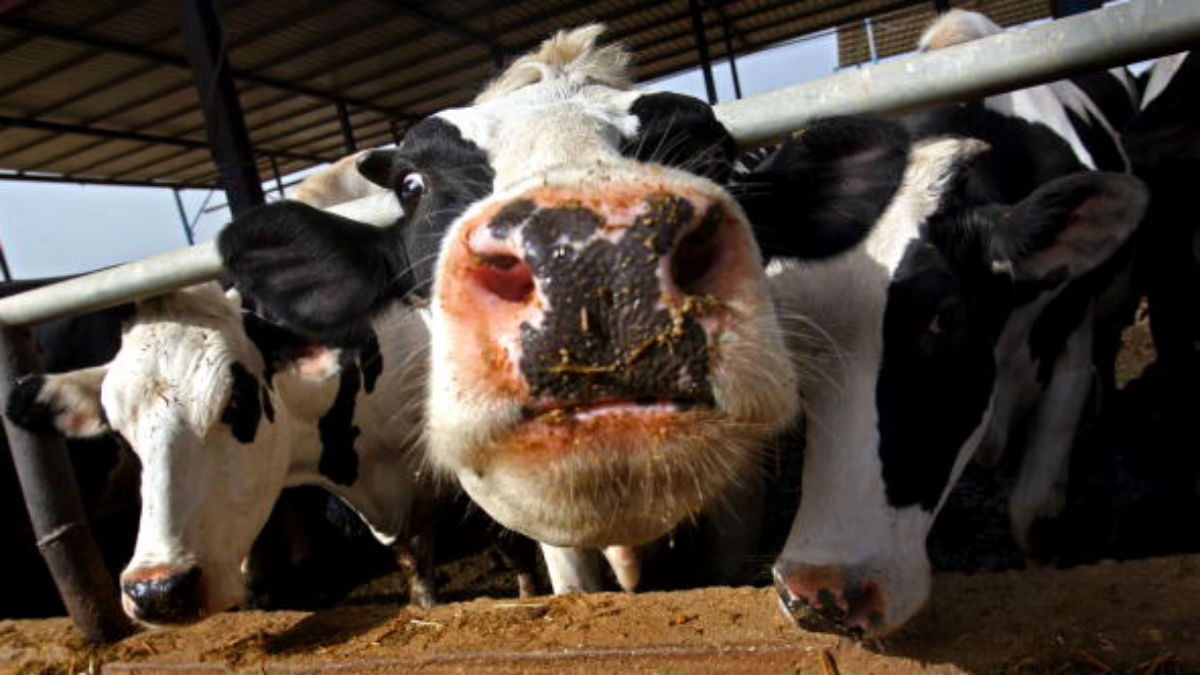New Zealand to slaughter 150,000 cows in record cull
Government hopes the biggest cull in the nation’s history will eradicate the Mycoplasma disease

A free daily email with the biggest news stories of the day – and the best features from TheWeek.com
You are now subscribed
Your newsletter sign-up was successful
New Zealand has ordered a mass cull of cattle in a bid to eradicate disease-causing bacteria from the national herd.
More than 150,000 cows will be slaughtered over the next two years at a cost of NZ$880m (£459m), as the world’s biggest dairy exporter attempts to deal with an outbreak of Mycoplasma disease.
The government will meet 68% of the cost, while farmers and the cattle industry will pay the rest, the New Zealand Herald reports.
The Week
Escape your echo chamber. Get the facts behind the news, plus analysis from multiple perspectives.

Sign up for The Week's Free Newsletters
From our morning news briefing to a weekly Good News Newsletter, get the best of The Week delivered directly to your inbox.
From our morning news briefing to a weekly Good News Newsletter, get the best of The Week delivered directly to your inbox.
Announcing the largest cull in the nation’s history yesterday, Prime Minster Jacinda Ardern said that while she sympathised with farmers, the government had “one shot” at eliminating the disease.
“Standing back and allowing the disease to spread would simply create more anxiety for all farmers,” she said.
Mycoplasma bovis, bacteria that can cause mastitis, pneumonia, and other diseases in cattle, was first identified in the country in July and has since spread to at least 37 farms.
It does not pose a food safety risk or humans but does cause significant production losses. Some of the slaughtered cattle may be used for beef, but others will be buried on farms or in landfill.
A free daily email with the biggest news stories of the day – and the best features from TheWeek.com
Officials carrying out the cull “have the legal authority to forcibly enter farms and kill animals even in cases where a farmer might resist, but they said they hope they don't have to use those powers,” Bloomberg reports.
Katie Milne, president of the advocacy group Federated Farmers, said they would try to ensure that farmers received the financial and emotional support they required.
“This is a tough time, and the pain and anguish [affected farmers] are going to go through is really hideous,” she said. “And we have to support them as neighbours, community members, farmers, friends.”
-
 Tourangelle-style pork with prunes recipe
Tourangelle-style pork with prunes recipeThe Week Recommends This traditional, rustic dish is a French classic
-
 The Epstein files: glimpses of a deeply disturbing world
The Epstein files: glimpses of a deeply disturbing worldIn the Spotlight Trove of released documents paint a picture of depravity and privilege in which men hold the cards, and women are powerless or peripheral
-
 Jeff Bezos: cutting the legs off The Washington Post
Jeff Bezos: cutting the legs off The Washington PostIn the Spotlight A stalwart of American journalism is a shadow of itself after swingeing cuts by its billionaire owner
-
 Epstein files topple law CEO, roil UK government
Epstein files topple law CEO, roil UK governmentSpeed Read Peter Mandelson, Britain’s former ambassador to the US, is caught up in the scandal
-
 Iran and US prepare to meet after skirmishes
Iran and US prepare to meet after skirmishesSpeed Read The incident comes amid heightened tensions in the Middle East
-
 Israel retrieves final hostage’s body from Gaza
Israel retrieves final hostage’s body from GazaSpeed Read The 24-year-old police officer was killed during the initial Hamas attack
-
 China’s Xi targets top general in growing purge
China’s Xi targets top general in growing purgeSpeed Read Zhang Youxia is being investigated over ‘grave violations’ of the law
-
 Panama and Canada are negotiating over a crucial copper mine
Panama and Canada are negotiating over a crucial copper mineIn the Spotlight Panama is set to make a final decision on the mine this summer
-
 Why Greenland’s natural resources are nearly impossible to mine
Why Greenland’s natural resources are nearly impossible to mineThe Explainer The country’s natural landscape makes the task extremely difficult
-
 Iran cuts internet as protests escalate
Iran cuts internet as protests escalateSpeed Reada Government buildings across the country have been set on fire
-
 US nabs ‘shadow’ tanker claimed by Russia
US nabs ‘shadow’ tanker claimed by RussiaSpeed Read The ship was one of two vessels seized by the US military